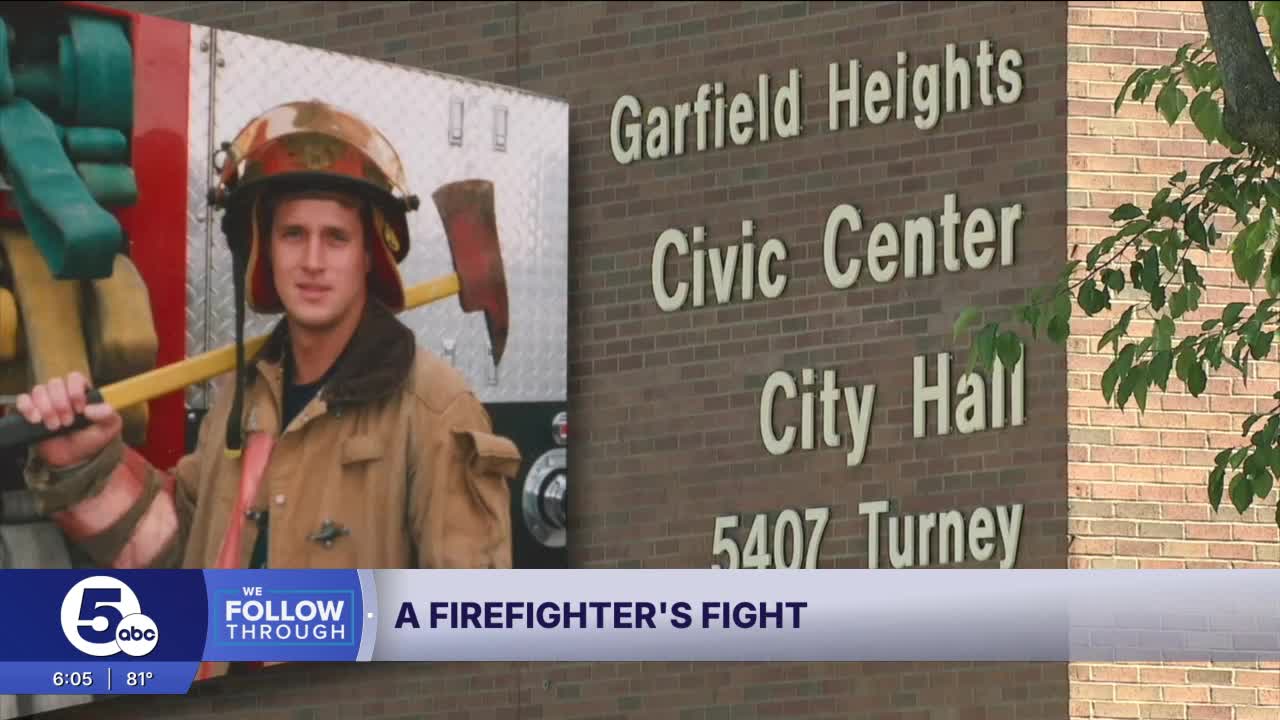Tom Lisy, a retired firefighter, won an Ohio Industrial Commission hearing after filing a Palumbo Act claim when Garfield Heights refused to cover him after his cancer diagnosis.
You can read the decision here.
Lisy's story
Lisy was a member of the Garfield Heights Fire Department for nearly 35 years.
"When I retired, I was looking forward to traveling, having fun," he said. "Then I find out I have cancer."
He filed a Palumbo Act claim after he was diagnosed with prostate cancer.
Ohio approved his claim.
But Garfield Heights refused.
News 5 Investigators reached out to Garfield Heights for an on-camera interview about Lisy's claim. Mayor Matt Burke and Milko Cecez, director of Law, declined our request.
Cecez emailed us the following response:
"Thank you for reaching out. At this time, the City respectfully declines the opportunity to participate in an interview. Please know that the City relies on a third-party administrator to manage its workers’ compensation claims, including any related assessments. Furthermore, a prior medical report provided to the City concluded that Mr. Lisy’s diagnosis was not causally related to his duties as a firefighter for the City of Garfield Heights. This conclusion served as the basis for the appeal(s) in this matter. We appreciate your understanding, and thank you again for contacting us."
Lisy said the medical report was prepared by a doctor who is not an oncologist and who has never examined Lisy.
The cancer connection
So, why are cities fighting their own firefighters over cancer claims?
After all, the Palumbo Act says it is presumed the firefighters incurred their cancers on the job.
The law also limits who is eligible for Palumbo Act benefits.
Only firefighters who've served at least six years, are non-smokers, and are under 70 qualify under the law.
There is also a growing body of scientific evidence that shows fighting fires increases a person's risk for several types of cancer.
In 2023, the International Agency for Research on Cancer, which is part of the World Health Organization, concluded "occupational exposure as a firefighter is carcinogenic to humans."
It found firefighters may be exposed to asbestos, chemicals in firefighting foams, flame retardants, diesel exhaust, and other hazards that elevate their cancer risk.
"It used to be a badge of honor to have soot all over our helmet," Bill Mastroianni said. The Euclid Fire captain teaches cancer prevention classes.
"If you can see the black soot on your fingers, that's, that's cancer," he said.
He's lost more colleagues than he can count to cancer, including Mike Palumbo.
"Approximately, one in three firefighters will get cancer in their career, and one of those three is probably going to die," he said.





